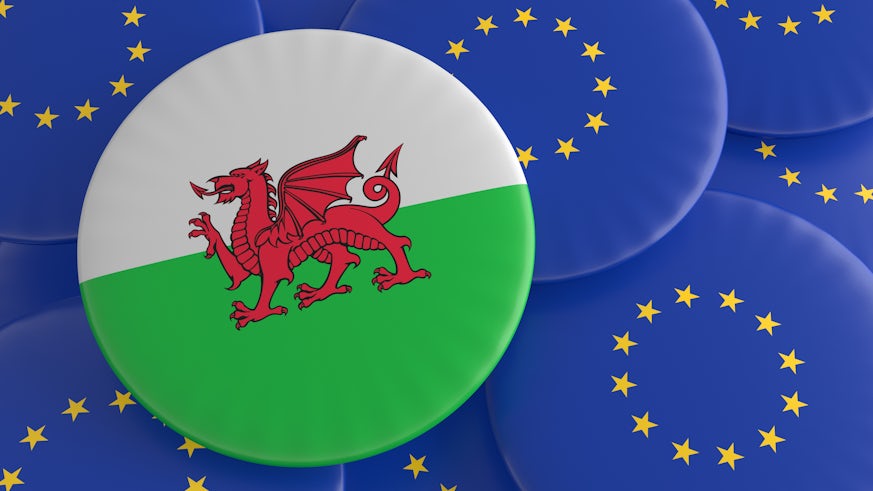‘Sub-states in transition’: Scotland and Wales EU strategy analysed by new research
21 June 2023

The UK’s transition out of the EU has not led to a reduction in Scotland and Wales’ EU-focused international relations activity or “paradiplomacy”.
Indeed, tensions between Scotland and the UK Government over Brexit have even seen an increase in more conflictual paradiplomacy from Scotland, according to a new academic study.
The findings are revealed by a new article authored by Rachel Minto, Carolyn Rowe and Elin Royles, and published in the Territory, Politics, Governance journal.
The publication maps thirty years of paradiplomacy towards the European Union by Scotland and Wales, from the pre-devolution period through to the response of the Scottish and Welsh Governments to the 2016 referendum vote to leave the EU.
The analysis confirms the role of party politics in shaping the nature of Scottish and Welsh paradiplomacy, particularly in the context of an independence-seeking SNP government. It also outlines the distinct example of Wales under the stewardship of governments positioning themselves as ‘good unionists and good Europeans’.
Devolution was established in 1999 in the context of EU membership, and the article marks out a period of ‘co-operative paradiplomacy’ by Wales until 2016, in contrast to Scotland. During this period Labour-led Welsh Governments operated within UK channels and EU Council meetings to influence UK negotiating positions on the key areas where Wales had a policy interest.
The analysis goes on to examine the crucial post-2016 period where the EU membership referendum accelerated Scottish efforts to distance their government and its interests from those of the Brexit-seeking UK Government, escalating to ‘protodiplomacy’ in which Scotland ‘presented European leaders with a vision of an independent Scotland with an independent international relations strategy’.
Wales, it is explained, undertook a more co-operative approach in line with constraints imposed on the Welsh Government by the vote to leave the EU. The Welsh Government and Plaid Cymru crafted a distinct position around maintaining Single Market and Customs Union participation. But Wales was ultimately side-lined in the UK’s decision-making process during 2020, and subsequently shifted to more qualified co-operation with the UK, which could result in further distinct paradiplomatic efforts in the years to come.
The full article can be read here.